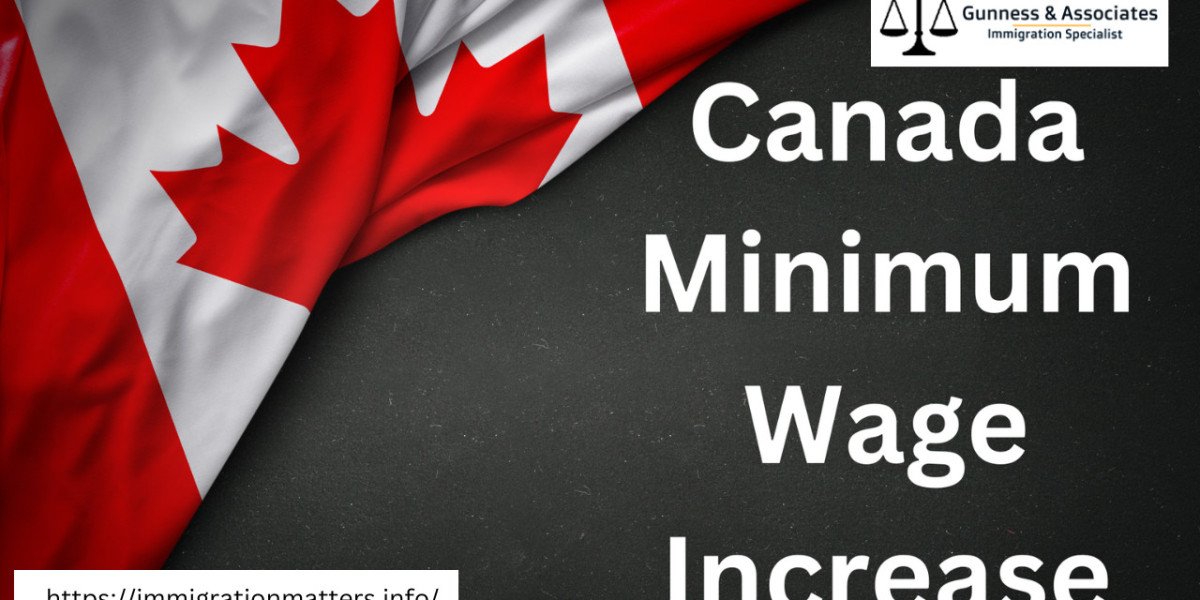The Government of Canada has provided with a comprehensive set of changes and increases on provincial and territorial minimum wages; some will go into effect beginning January 2025. In its current scenario, this could provide the essential catalyst in trying to resolve problems brought about by issues related to living costs as well as assure appropriate payback in exchange for hard work, while keeping true the longings in terms of enhancing economic prospects while diminishing impoverishments and protection towards the employee workforce.
Nationwide Minimum Wage Increases: In early 2025, the Federal Minimum Wage will have increased to $17.70 per hour
Under the newly established federal order, the minimum wage for federated industries all over the nation will be bumped up to a minimum of $17.70 per hour at the start of early 2025. Increasing the minimum wage is aimed to curb inflation but also to benefit workers with higher, stable salaries that match increasing living costs. The federal minimum wage adjustment is a move by the Government of Canada, which aims at improving the financial security of the workers while assuring a just and fair workplace for all.
The employees working directly under the federal control in several businesses like banking, telecommunication, and transportation are directly affected by this step.
Rise in Provincial and Territorial Minimum Wages
In addition to this federal increase, several provinces and territories across Canada began raising the Nationwide Minimum Wage, effective at the start of 2025. Provinces such as Yukon, New Brunswick, and Nova Scotia are considering an increase in wages to ensure workers in these provinces receive some extra money. In this way, the changes happen in response to inflationary tensions and the continuously increasing cost of living, assuring that incomes are sufficient in order to reflect how the economy actually is today.
For instance, Nova Scotia will significantly have its minimum wage increase considerably and monitored in the process to understand how this actually impacts the standard of living of workers. New Brunswick has promised better entry-level and low-wage worker wages, while Yukon’s minimum wage is competitive with what other regions are charging to maintain the same minimum wage standards of other provinces. Changes like this across various provinces represent a bigger stride toward more balanced wage policies all over the country.
Nunavut has the highest minimum wage at $19.00 an hour
It is one of the most unbelievable minimum wage rates among all provinces and territories to be found in Nunavut. The $19.00 per hour remains the highest minimum wage in the country. This is badly needed for workers in Nunavut, with a relatively high cost of living and the general isolation of this Canadian territory. Besides, it costs more in products and services. These newly negotiated salary levels that reflect regional economic conditions come out of Minimum Wage revisions all across the Country. Despite the increase in living costs, they support the workers in achieving a respectable standard of living.
Keeping the nationwide minimum wage at its highest level in Nunavut reflects the commitment of the territory to ensure that workers can afford basic needs, such as housing, transportation, and groceries. The added economic challenge of remoteness makes Nunavut’s higher wage ensure that its workforce is resilient and that businesses can attract and retain skilled workers.
Why Should the Minimum Wage of Canada be Increased?
The planned national wage rises in early 2025 are not simply increases in wages for workers; rather, they form part of a much larger scheme to help the government tackle economic inequality so that Canadians can still lead comfortable lives despite inflation that seems to creep into every walk of life. The most prominent reasons why these rises are important include:
- Economic Stability: Higher wages, due to the Nationwide Minimum Wage increases, result in higher disposable income, which can spur local economies. More money in the pockets of workers translates to more spending on goods and services, which spurs business growth and overall economic stability in Canada.
- Poverty Reduction: Ensuring a fairer wage for low-wage earners is a step towards achieving what the government has pledged for poverty reduction. Raising the nationwide minimum wage is always an important step toward increasing income equality and creating equal opportunities for those who badly need it.
- Supporting Fair Compensation: The nationwide minimum wage increases reflect Canada’s ongoing efforts to ensure fair compensation for its workforce, regardless of where workers are employed. It is a reflection of worker rights and a commitment to fair labor practices.
- Addressing Inflation: Many Canadians in recent years have been concerned with the rising inflation levels, mainly due to rising costs in housing, food, and healthcare. By adjusting the nationwide minimum wage, it will help workers maintain a step with inflation levels, such that their purchasing power is not eroded.
How Can Employers Adapt to the Minimum Wage Changes?
Employers in all regions of Canada will have to respond to the new Nationwide Minimum Wage rate. For businesses, this might come in the form of revisiting payroll budgets, staffing models, and even higher costs for labor passed on to consumers. The increase will be a cost but one that also offers business opportunities for investment in workforce development and maintaining employee retention.
Competitive wages can attract the best talent, reduce turnover, and increase employee satisfaction, thus improving overall business performance. Employers should review their compensation strategies and ensure that they are consistent with the changing labor market.
Canada’s Commitment to a Fairer Economy
This reflects the nation’s ongoing efforts to build a more equitable economy where all workers are justly rewarded for their labor. This move of increasing the minimum wage in various provinces and territories, with Nunavut maintaining its $19.00 an hour rate, will prove to be meaningful action from the Canadian government to reduce poverty levels, spur economic growth, and promote fair working conditions for all Canadians.
If you want to know more details about “Immigration Drives Canada Economic Growth and Strengthens the Labour Market“ you can contact one of our immigration specialists at Gunness & Associates.
Please Book an Appointment with a Member of Our Assessment Team!
Book an Appointment Now with Pratik!
Book an Appointment Now with Gurleen!
Gunness & Associates has helped thousands of people successfully immigrate to Canada with their families. Our skilled and experienced immigration experts have the expertise to accurately examine your case and advise you on the best method of proceeding to serve your needs.
For honest and straightforward advice, contact the experts
Get a free Assessment
Join our newsletter and get up-to-date immigration news Click here
All rights reserved ©2024 Gunness & Associates









